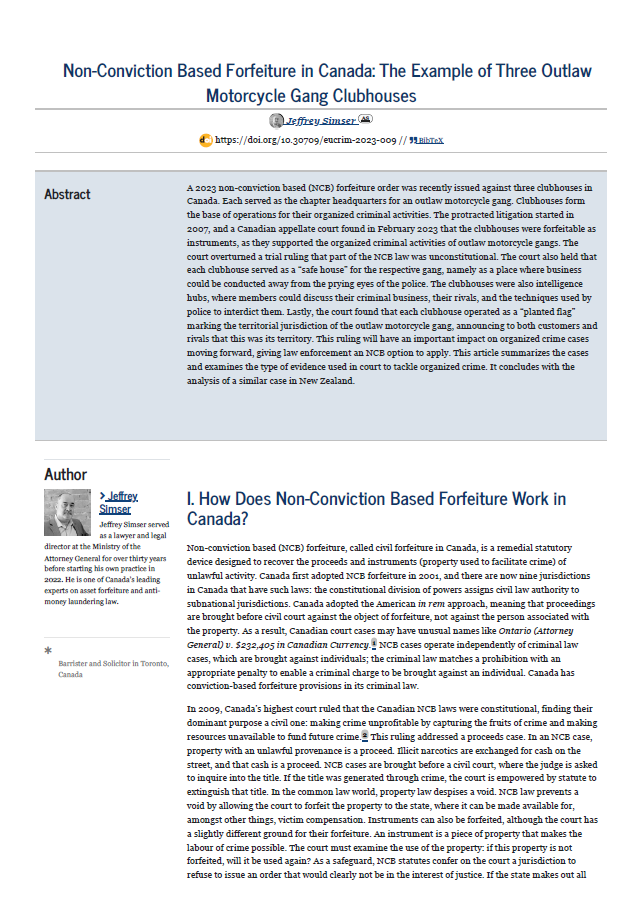PUBLICATIONS
May 25, 2023
Non-Conviction Based Forfeiture in Canada: The Example of Three Outlaw Motorcycle Gang Clubhouses
Non-Conviction Based Forfeiture in Canada: The Example of Three Outlaw Motorcycle Gang Clubhouses
DATE
May 25, 2023
AUTHORS
Jeffrey Simser
YEARS
2023
Non-Conviction Based Forfeiture in Canada: The Example of Three Outlaw Motorcycle Gang Clubhouses
A 2023 non-conviction based (NCB) forfeiture order was recently issued against three clubhouses in Canada. Each served as the chapter headquarters for an outlaw motorcycle gang. Clubhouses form the base of operations for their organized criminal activities. The protracted litigation started in2007, and a Canadian appellate court found in February 2023 that the clubhouses were forfeitable as instruments, as they supported the organized criminal activities of outlaw motorcycle gangs. The court overturned a trial ruling that part of the NCB law was unconstitutional. The court also held that each clubhouse served as a “safe house” for the respective gang, namely as a place where business could be conducted away from the prying eyes of the police. The clubhouses were also intelligence hubs, where members could discuss their criminal business, their rivals, and the techniques used by police to interdict them. Lastly, the court found that each clubhouse operated as a “planted flag” marking the territorial jurisdiction of the outlaw motorcycle gang, announcing to both customers and rivals that this was its territory. This ruling will have an important impact on organized crime cases moving forward, giving law enforcement an NCB option to apply. This article summarizes the cases and examines the type of evidence used in court to tackle organized crime. It concludes with the analysis of a similar case in New Zealand.
DOCUMENTS (1)

